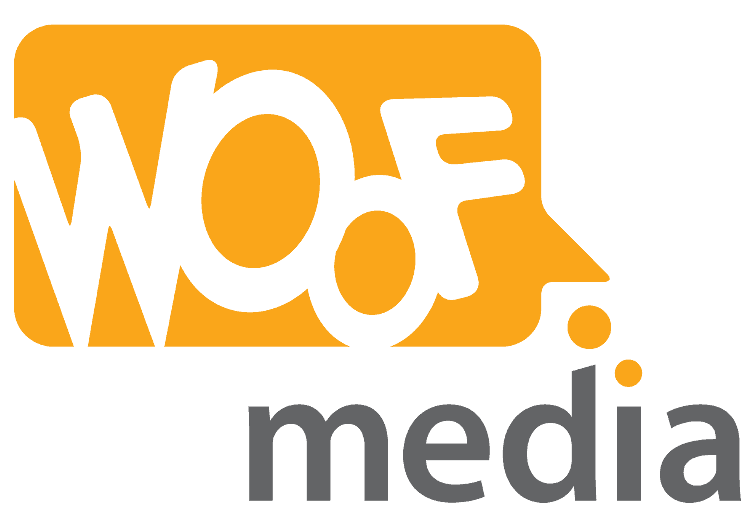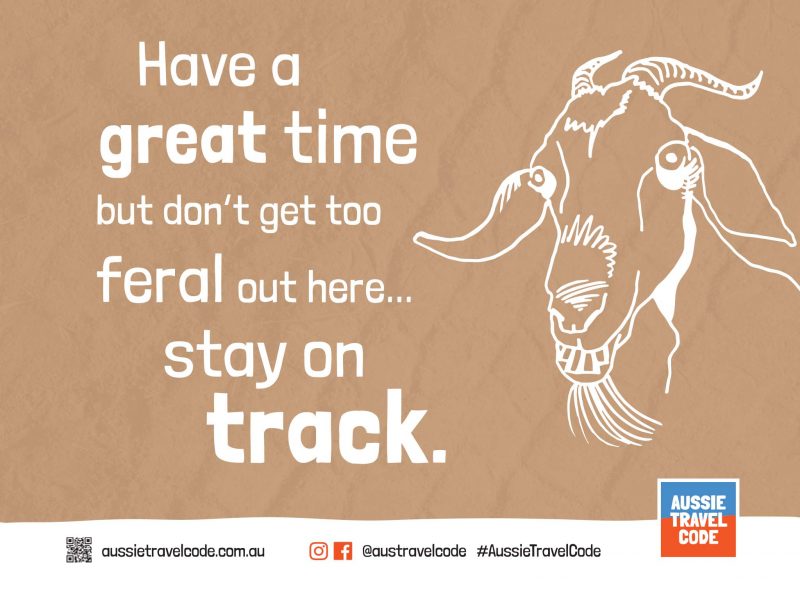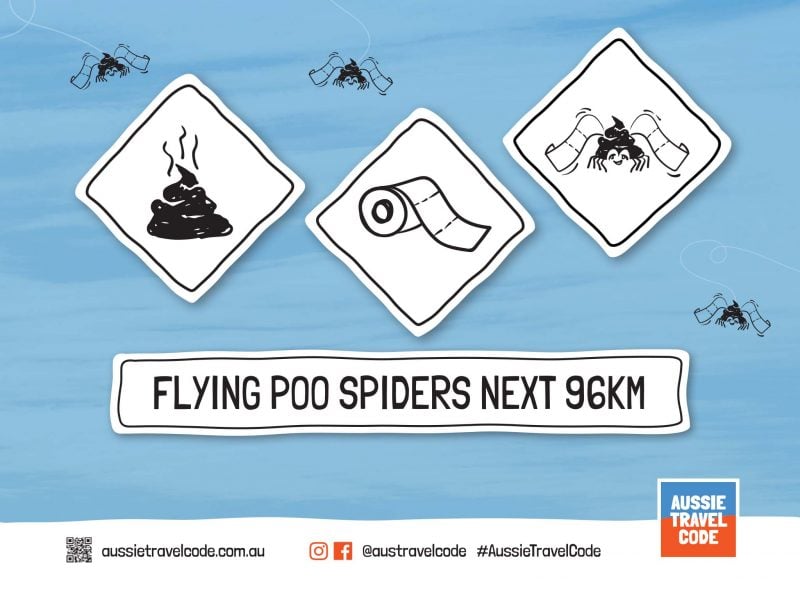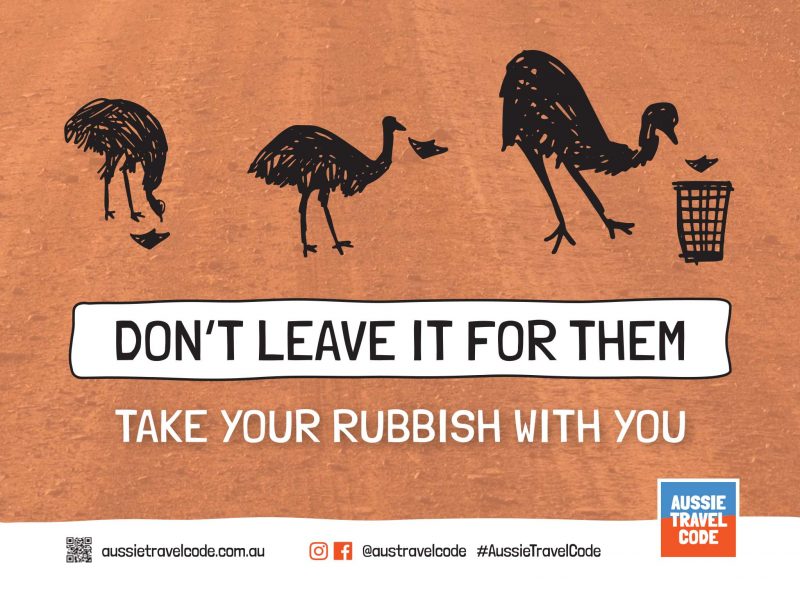As regional travel recovered rapidly in late 2020, a collaborative project team of community-based organisations came to us with a request to help them support responsible tourism in South Australia's Flinders Ranges and Outback.
The initiative was entirely community-led, supported by funding from the board of the Flinders Ranges and Outback Tourism (FRO) and the Outback Communities Authority (OCA), with in-kind support from Regional Development Australia Far North (RDAFN) and Landscapes South Australia – SA Arid Lands.
The Challenge
The volume of visitation to the Flinders Ranges and Outback region had been steadily increasing before the pandemic, and the project team predicted it would accelerate once domestic travel was available again.
Tourism growth is a key driver of economic development for the region, but it also introduced new demands on remote areas that were equipped with very basic facilities. The residents were dealing with the fallout from a high demand on community facilities like rubbish disposal, toilet facilities and community services.
Rubbish was left to pile up around bins and ill-prepared travellers were not able to properly dispose of their own bio-waste. Safety was also a top concern, with an increasing number of travellers finding themselves in danger, having underestimated the preparation required to travel vast distances in extreme weather conditions, unfamiliar landscapes and with very little phone reception.
Historically, the region had received very little engagement from government and any level of funding was difficult to come by; the resources required to fund and manage more toilet blocks or bins was not available.
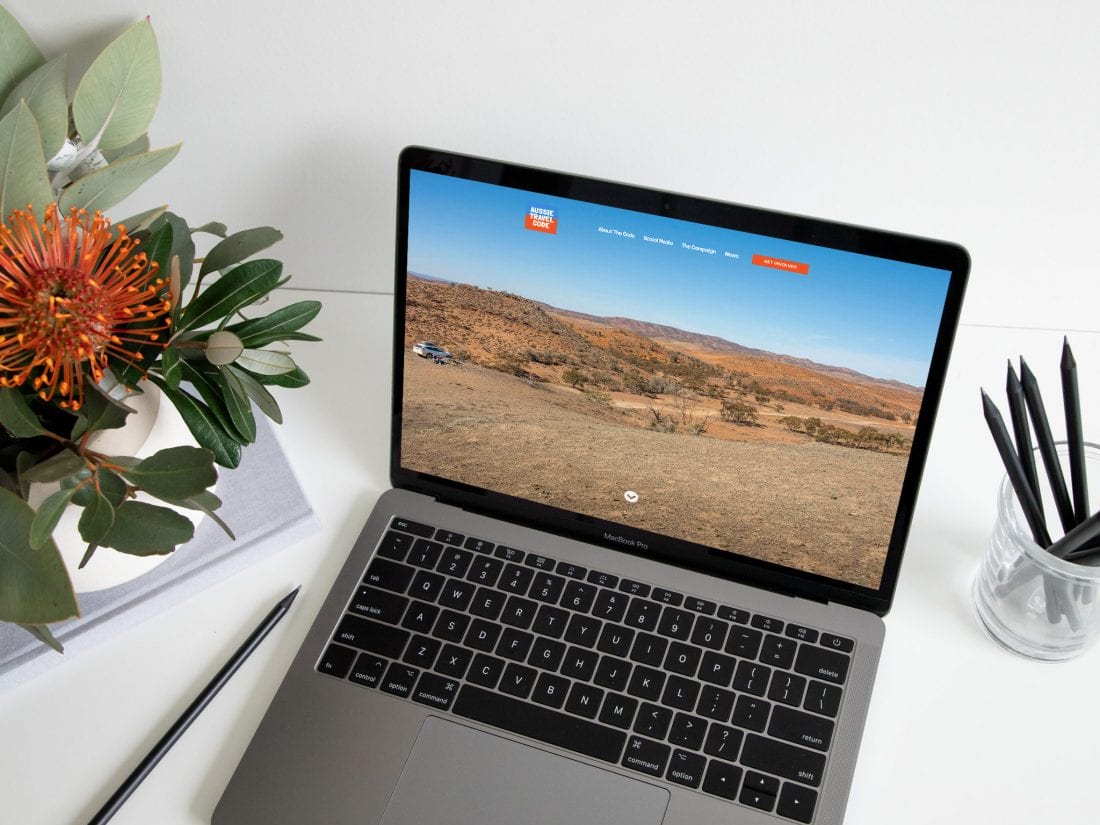
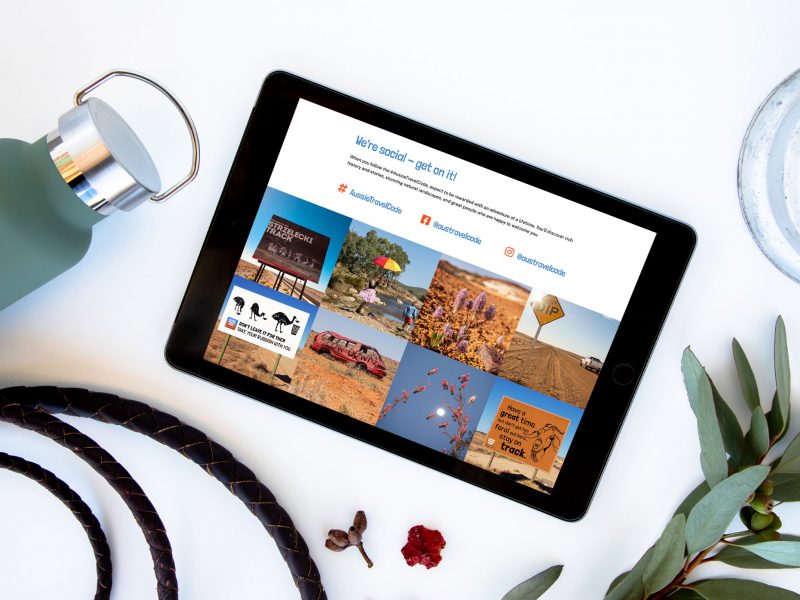
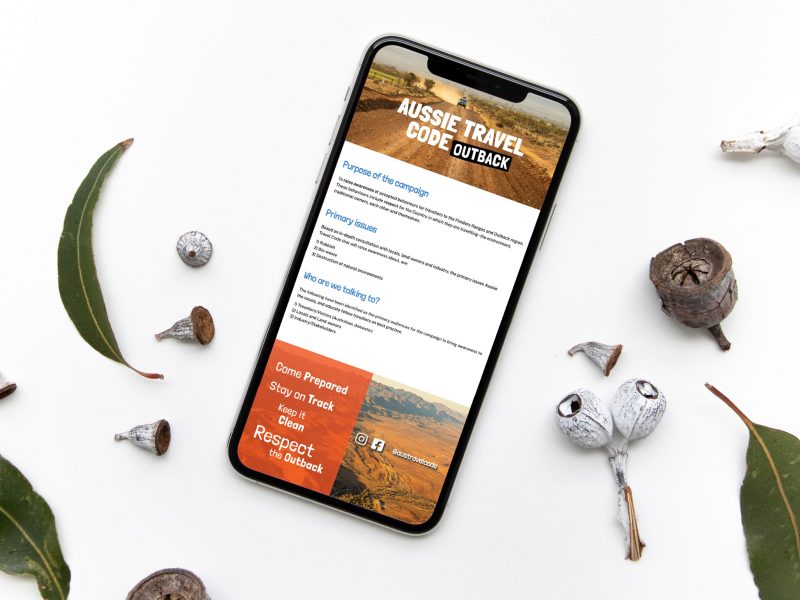
Community Consultation
At its heart, this project was initiated to advocate for local residents and preserve the lifestyles and environments of their regional communities. To ensure the project communicated accurately and effectively, we undertook some exceptionally valuable community consultation to identify the key problems and how best to address them.
We created a survey of 10 questions and received 120+ responses.
Results
The top 3 concerns were:
The most common sentiments from locals were:
The Strategy
What developed from this point was a much bigger idea than any of us intended, but one that all of us on the project team believe can be an incredibly helpful resource to shape sustainable tourism growth across many of Australia's diverse regions.
Inspired by the success of the "Tread Lightly" approach in the USA, our objective was to promote the importance of sustainable, respectful travel behaviours.
The project team aspired to advocate for local concerns, and influence visitation in ways that would encourage tourism activity to have a minimal or positive impact on the communities and natural environments of the South Australian Outback.
We posited that travellers needed a guide, or a "code of conduct", to support them in doing the right thing. Everyone was exhausted from the stern, "finger-waggy" tone of the government travel advice, so delivery would need to be friendly, human and very tourism-positive.
Driven by social media, we focused on targeting the "moveable middle". This approach was chosen because it reflected the survey responses that shared a common sentiment that the region couldn't afford to discourage visitors, and that many mistakes were simply naive. We agreed that most travellers are visiting a region because they love it, and will do the right thing if they know what that is.
From this groundwork, the Aussie Travel Code brand and phase 1 campaign was created.
The Aussie Travel Code equips visitors with the insider knowledge they will need when they are travelling somewhere new. Especially in remote or unique regions, where things might be a little different to what they're used to back home. The local insights shape advice that would contribute to the creation of a respectful, prepared traveller in the region; from weather events to infrastructure or wildlife and road safety.
The Tactical Side
Beginning with South Australia's amazing Outback, Phase 1 of the Aussie Travel Code launched with a social media campaign that addressed the three key problems.
We used a cheeky tone of voice to share clear, helpful advice and quirky illustrations for additional cut-through on social media.
We communicated 4 key messages:
Phase 1 rolled out on social media in 2020 to an overwhelmingly positive response.
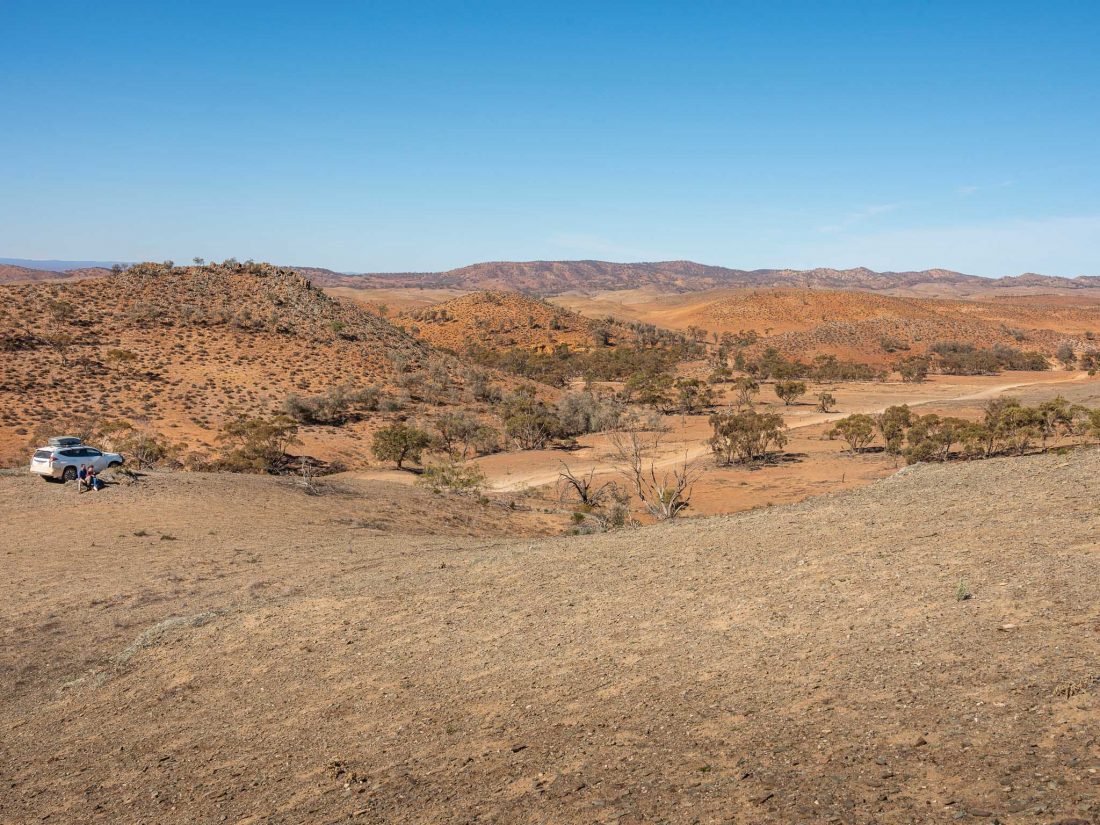
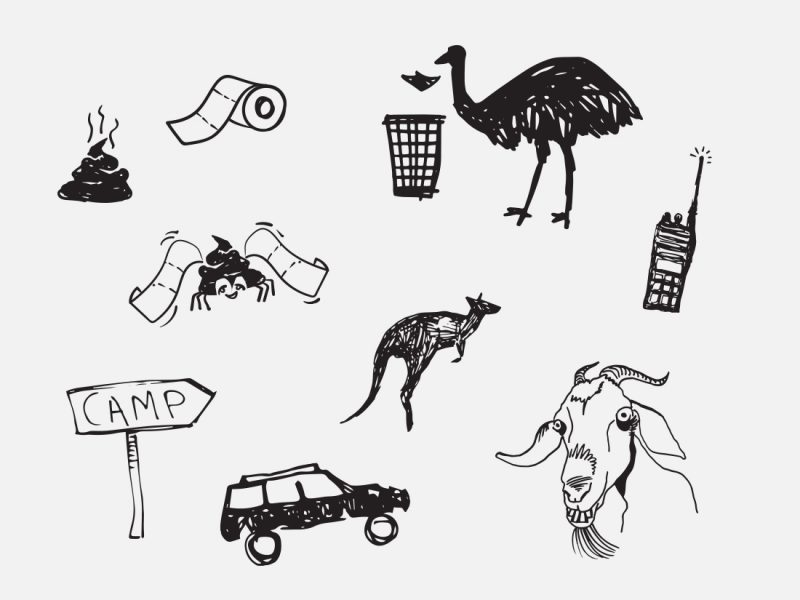
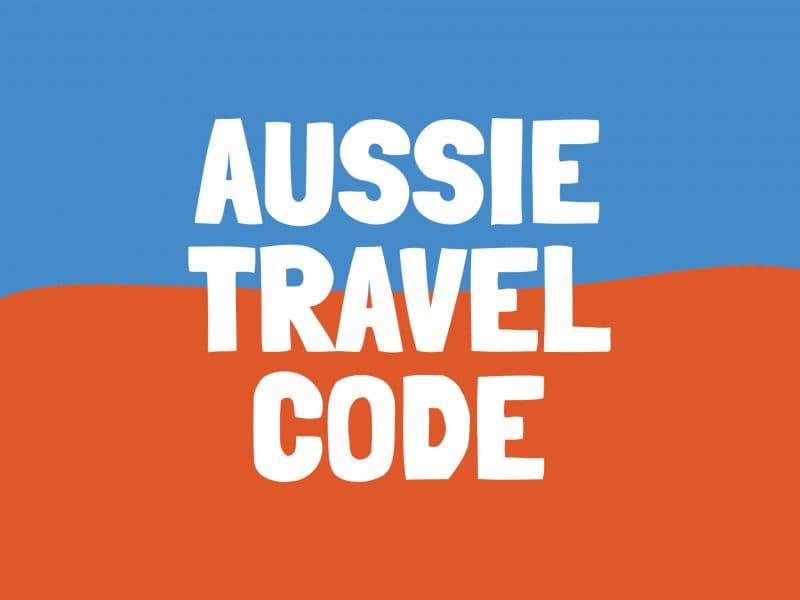
The Results
The Aussie Travel Code social media campaign clearly resonated with the local community and travellers
The strategy also received substantial support from the broader tourism industry, most notably from Tourism Australia. As many destinations across Australia continue to strive towards long-term growth, leaders are increasingly focused on ensuring this growth provides a positive and sustainable outcome for communities and the environment.
Tourism Australia is now a supporting partner of The Aussie Travel Code. The team is currently exploring the opportunity to roll out the Aussie Travel Code brand and strategy in localised regions across the country.
What's next
The campaign was a hit with stakeholders across the region, prompting the Outback Communities Authority to apply for a federal grant for permanent Aussie Travel Code signage. As of late August 2022, the signage project is close to completion:
-
10 x billboard-sized signs installed at key gateway locations to the Outback
-
300 x smaller signs are in the process of being distributed to interested businesses, pastoral properties and progress associations
-
Pull-up banners and stencils will be used to display additional messaging at high-trafficked tourist rest stops and visitor information centres
If your destination is interested in using the Aussie Travel Code brand for a sustainable tourism campaign, become a partner at aussietravelcode.com.au.
How can we help?
We'd love to hear about your marketing challenges and see if we could be the right fit to help you get results like these.
